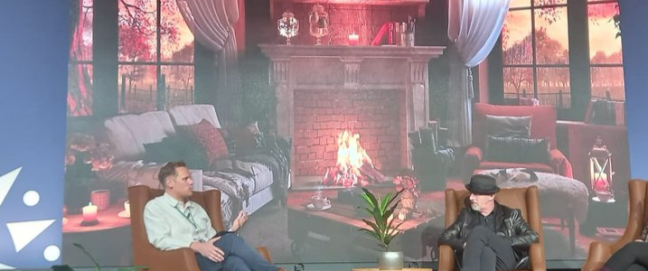Amidst intersecting and worldwide crises, the need for effective leadership in philanthropy has never been more important. What kind of leadership do we want? And how can we attract those leaders?
Alliance hosted a global conversation with our Regional Representatives, a programme generously supported by Badr Jafar along with this event, to focus on what new leadership should look like – and how to open up the concept of leadership to innovation.
Moderated by Digital Editor Elika Roohi, the panel included:
- Ese Emerhi, Global Network Weaver at Global Fund for Community Foundations and the Alliance Regional Representative for Sub-Saharan Africa
- Aarti Mohan, Co-founder and Partner at Sattva Consulting and the Alliance Regional Representative for South Asia
- Agustín Landa, Founder at LANZA and the Alliance Regional Representative for Latin America
- Heba Abou Shnief, senior research and data director at Arab Foundations Forum and the Alliance Regional Representative for the Arab Region
- Fan Li, co-Editor-in-Chief of SSIR China and International Advisor to the Leping Foundation and the Alliance Regional Representative for East Asia
A few highlights from the event:
-

Ese Emerhi
Ese: ‘Especially in the African context, as more and more Black leaders step up and get into positions of leadership, there needs to be an element of care. Black people – Africans especially – when we step into these roles, we are bringing a lot of perspective, sometimes a lot of trauma, into these roles that needs to be accounted for and needs to have space for true, effective leadership to happen.’
-

Aarti Mohan
Aarti: “We need system leaders. Leaders that can operate in a network environment and not be confined organisationally, where they bring together seemingly very different skills and resources, mobilise talent and make action happen. …We also need leaders who can lead change through complex pathways. How do you have and support visionary organisation leaders with all the structures and support systems they need?
-

Agustín Landa
Agustín: ‘In Latin America it is a complex community as you have different countries. … There are new kinds of examples of leadership which are willing to understand more. I was shocked on a trip to Chile, visiting a soup kitchen. We were there in this community and they said “In this community, even though we’re poor and don’t have resources, or the best health we should have, nobody’s a liability. We are all an asset to this community. We can all give and support something.” In philanthropy we don’t value those assets and we don’t act or construct with them. This is a learning for funders and leaders.’
-

Heba Abou Shnief
Heba: “Any discussion about leadership has to take into account this context, because leadership is a symptom of a wider system that’s happening. Observations:
- Leadership is slow to change. Top leadership positions on governing boards stay for years, stifling growth and innovation. There’s also slow investment in leadership, driven by the persistent narrative of efficiency through low overhead costs
- Power structures. Classical hierarchical, top-down structure – you rarely find the lean, flat structures where there’s more room for voices
- Leadership is going through a demographic transition. 1/3 of our population are youth and adolescents, and they’re thinking differently about how to conduct philanthropy
-

Fan Li
Fan: “In Asia, mostly in the northeast (China, Japan and South Korea) there are many leadership programs in the sector. Some are designed for college students, some are businesspeople, and the majority are designed for those already in the sector but want to learn to become a better leader. What makes a successful leadership program? As we are facing this time of crisis and uncertainty, what is really required is a deeper commitment, something close to a moral courage that you would commit to the cause. Secondly is a skill or even a willingness to work collectively with others.”
You can watch the full recording of the event here:
Our next Alliance event is on CRISIS, REACTION AND RESILIENCE, which will take place on 17 November. Make sure you are on our mailing list to receive an invite!
Amy McGoldrick is the Marketing, Advertising & Events Manager.





Comments (0)